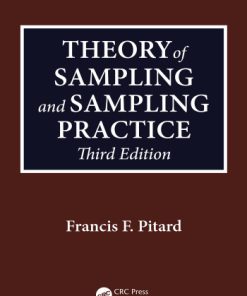Correctional Theory Context and Consequences 1st edition by Francis Cullen, Cheryl Lero Jonson 1506306537 9781506306537
$50.00 Original price was: $50.00.$25.00Current price is: $25.00.
Correctional Theory Context and Consequences 1st edition by Francis T. Cullen, Cheryl Lero Jonson – Ebook PDF Instant Download/DeliveryISBN: 1506306537, 9781506306537
Full download Correctional Theory Context and Consequences 1st edition after payment.

Product details:
ISBN-10 : 1506306537
ISBN-13 : 9781506306537
Author: Francis T. Cullen, Cheryl Lero Jonson
“The text is an incredible composite of the literature that has shaped correctional practice. The authors have a great capacity for making research interesting and accessible. Cullen and Jonson have accomplished their goal of motivating readers to become sophisticated consumers of correctional knowledge.” —Betsy Matthews, Eastern Kentucky University The Second Edition of Correctional Theory: Context and Consequences continues to identify and evaluate the major competing theories used to guide the goals, policies, and practices of the correctional system. Authors Francis T. Cullen and Cheryl Lero Jonson demonstrate that changes in theories can legitimize new ways of treating and punishing offenders, and they help readers understand how transformations in the social and political context of U.S. society impact correctional theory and policy. Designed to motivate readers to become sophisticated consumers of correctional information, the book emphasizes the importance of using evidence-based information to guide decisions, rather than relying on nonscientific commonsense or ideology-based beliefs.
Correctional Theory Context and Consequences 1st table of contents:
Part I. Crisis in American Corrections
1. From Theory to Policy: Evidence-Based Corrections
Theories of Corrections
Seven Theories in Brief
Retribution: Balancing the Scales of Justice
Deterrence: Scaring Offenders Straight
Incapacitation: Locking Up Predators
Restorative Justice: Reducing Harm
Rehabilitation: Saving the Wayward
Reentry: Saving Released Prisoners
Early Intervention: Saving the Children
Utility, Opinion, and Evidence
Evidence-Based Corrections
Correctional Quackery
Insider and Outsider Knowledge
Evidence-Based Baseball
Conclusion: What’s Ahead?
2. Correctional Theory in Crisis: America’s Changing Context
What Is Rehabilitation?
The Rise of the Rehabilitative Ideal
The Rise of the “Penitentiary”
The New Penology: The Cincinnati Congress of
Individualized Treatment: The Core of the Rehabilitative Ideal
The Progressive Era: Theory Into Reality
The Rise of Corrections
Attacking Rehabilitation
The “Nothing Works” Doctrine: Martinson and Beyond
Conclusion: Crisis in Correctional Theory
Part II. The Punishment Response
3. Just Deserts: Doing Justice or Getting Tough?
The Concepts of Retribution and Just Deserts: Punishing the Crime
Retribution: Just and Painful
Four Problems for Retribution
The Prison Problem
The Criminology Problem
The Inequality Problem
The Utility Problem
The Justice Model: Restraining State Discretion
The Failed Promise of Rehabilitation
The Solution: Doing Justice
What Went Wrong? Winning the Battle but Losing the War
Winning the Battle
Losing the War
Conclusion: The Need for Crime Control
4. Deterrence: Scaring Offenders Straight
The Concept of Deterrence
Types of Deterrence: General and Specific
Certainty and Severity of Punishment
Is Deterrence a “Conservative” Theory?
The Theoretical Assumptions of Deterrence
Studying Whether Deterrence Works: Assessing Types of Evidence
Policy Changes That Increase Punishment
Macro-Level Studies of Punishment and Crime Rates
Conducting a Macro-Level Study
What Macro-Level Studies Find
Perceptual Deterrence Studies
Beware of the Ecological Fallacy
Studying Individuals’ Perceptions of Punishment
Two Studies
Deterrence in the Community
Do Community Control Programs Work?
The RAND ISP Study: A Classic Experiment in Corrections
The Effects of Imprisonment
Studying Imprisonment and Recidivism
Does Imprisonment Deter?
Conclusion: The Limits of Deterrence
5. Incapacitation: Locking Up the Wicked
Too Many Prisoners
More Than Enough Criminals
The Concept of Incapacitation
Collective Incapacitation
Selective Incapacitation
Estimating the Incapacitation Effect: Studying Individual Offenders
Inmate Self-Report Studies
Longitudinal Studies
Not So Quick: Don’t Lock Up Everyone Yet
Estimating the Incapacitation Effect: Macro-Level Studies
Spelman’s Research
Complicating Matters: Two Other Studies
Conclusion: Compared to What?
Part III. The Social Welfare Response
6. Restorative Justice: Reintegrative Shaming
The Concept of Restorative Justice
The Appeal of Restorative Justice
Three Problems
The Justice Problem
The Prison Problem
The Criminological Problem
Does Restorative Justice Work?
Four Limits
Five Studies
Conclusion: The Limits of Harm
7. Rehabilitation: What Works to Change Offenders
The Concept of Rehabilitation
Knowing What Works
Challenging Nothing Works: Narrative Reviews
Standing Up to Martinson: Ted Palmer’s Rebuttal
Bibliotherapy for Cynics: The Canadians Get Involved
Challenging Nothing Works: Meta-Analytic Reviews
What Is a Meta-Analysis?
The Overall Effect Size
Heterogeneity of Effect Sizes
The Impact of Meta-Analysis on the Nothing Works Debate
What Does Not Work
What Does Work: Principles of Effective Intervention
What Else Might Work?
Desistance-Based Rehabilitation
The Good Lives Model
Conclusion: Reaffirming Rehabilitation
Part IV. Extending the Vision of Corrections
8. Reentry: Saving Offenders From a Life in Crime
From Parole to Reentry
The Reentry Problem
Nature of the Problem
Discovery of the Problem
What’s Going on Today
Reentry Programs
Institutional Programs
Community Programs
The Effectiveness Problem
Four Barriers to Effectiveness
Taking Stock of Effectiveness
Two Things to Keep in Mind
Take Coming Home Seriously
Confront Collateral Consequences
Conclusion: Saving Offenders From a Life in Crime
9. Early Intervention: Saving Children From a Life in Crime
Lessons From Child Criminology
The Discovery of Childhood
Beyond Adolescence-Limited Criminology
The Need for Early Intervention
Five Programs That Work—At Least When Done Right
Nurse Home Visitation Program
High/Scope Perry Preschool Program
Functional Family Therapy
Seattle Social Development Project
Multisystemic Therapy
Two More Reasons to Support Early Intervention
Cost Effectiveness
Public Support
Conclusion: Beyond Adult-Limited Corrections
10. Six Correctional Lessons: Choosing Our Future
Three Themes
Theory Has Consequences
The Social Context Has Consequences
Ignoring the Evidence Has Consequences
Six Lessons
Punishment Does Not Work Well
Prisons Work Somewhat
Reaffirm Rehabilitation
Reentry Matters
Save the Children
Things Can Change
Conclusion: Choosing Our Future
References
People also search for Correctional Theory Context and Consequences 1st:
correctional theory context and consequences pdf
correctional theory context and consequences 2nd edition
correctional theory context and consequences sage publications
correctional theory context and consequences 2nd edition pdf
correctional theory
Tags: Correctional, Theory Context, Consequences, Francis Cullen, Cheryl Lero Jonson
You may also like…
Romance - Paranormal Romance
Barrett Shifters of Beaver Brook 4 1st Edition Lisa Cullen Cullen Lisa
Business & Economics - Management & Leadership
Theory of Sampling and Sampling Practice, Third Edition Francis R Pitard
Politics & Philosophy
Equality in Theory and Practice A Moral Argument for Ethical Improvements Ronald Francis
Mathematics Biology and other natural sciences - Ecology
Engineering - Social & Cultural Aspects of Technology
Relationships & Lifestyle - Diet & Nutrition
Business & Economics - Personal Finance
Get It Together Organize Your Records So Your Family Won t Have To 8th Edition Melanie Cullen
Education Studies & Teaching - School Education & Teaching
Graduate Employability in Context: Theory, Research and Debate 1st Edition Michael Tomlinson
Relationships & Lifestyle - Psychological Self-Help
Correctional Assessment Casework and Counseling Anthony Walsh












